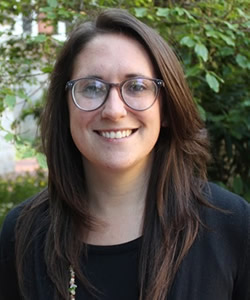There is a wide range of labels we use to refer to people on the move: economic migrant, forced migrant, refugee, internally displaced person (IDP), etc. There are varying degrees of voluntariness embedded in these labels; for example, “economic migrants” are often understood to be voluntary migrants, choosing to move from their homes in search of better economic opportunities. Forced migrants, such as refugees and IDPs, who are forced to leave their homes are considered to be involuntary migrants. The degree of voluntariness in the decision to migrate (as well as a host of other factors, such as where you left from, how you came to your destination, the documents you do or do not bring with you, etc.) translates into dramatic material impacts on people’s lives. Under international law, those forced to leave their homes are entitled to a range of legal protections and aid that those who are considered to be voluntary migrants are not.
Beyond the legal realm, popular narratives about the displaced reinforce this division between voluntary and forced migration; the mainstream media and other sources that feed into the popular imagination conjure up perceptions of those who are forced to leave their homes as more deserving of our sympathy and aid money, and those who are seen as moving voluntarily are framed as opportunistic, taking advantage of global migration pathways (sometimes pioneered by forced migrants) to seek economic opportunities abroad. In recent years, nowhere has this debate been waged more fiercely than in discussions of irregular migrants crossing the Mediterranean from Turkey and North Africa into southern Europe.
Analyses of these labels, what they mean, and who they impact are not new (two balanced and digestible ones can be found here and here). However, what I think is missing from much of the attempts to understanding these labels are the experiences of the people who we are labeling—not only in terms of legal entitlements and access to services, but also how these migrants come to perceive themselves vis-a-vis the labeling system.
In the discursive sense, the effect of our current way of framing voluntary and forced migration—with forced migrants as helpless victims of their circumstances deserving of our pity and money, and voluntary migrants as opportunistic and calculating, looking to seize any chance to improve their economic situation—is to elide migrants’ individuality, humanity, and agency, thus relegating them to broader tropes of deprivation, loss, and opportunism. One approach to counter this is to bring the voices of the people we are labelling to the forefront of the discussion, a meaningful incorporation of what we have called the “human dimension” of migration.
Restoring this “human dimension” to discussions of migrants and the displaced was a central theme at the Jesuit Universities Humanitarian Action Network (JUHAN) Conference, “Principles in Crisis: Refugees and Responsibility,” held June 27 through 29, 2017. We gave two presentations on the crucial nature of prioritizing the voices of the displaced, drawing on qualitative data collected as part of a longitudinal study on internal displacement and durable solutions in Iraq and a series of participatory video workshops conducted with refugees in Amman, Jordan.
At JUHAN, it became readily apparent that while there was a recognition that the voices of migrants and the displaced should inform programming and policy at all levels, there were a number of barriers to reform, including concentration of power within an exclusive and insular group of actors, what keynote speaker Dr. Michael Barnett called the “humanitarian club.”
Changing a discourse is no easy task, but it is something that I believe can happen, albeit incrementally, at all levels. Taking care to not only prioritize and listen to but also meaningfully incorporate the voices of those impacted by the complex system of categorization we use to label migrants can and should happen across sectors and disciplines, from the university classroom to monitoring and evaluation programming in the field.

